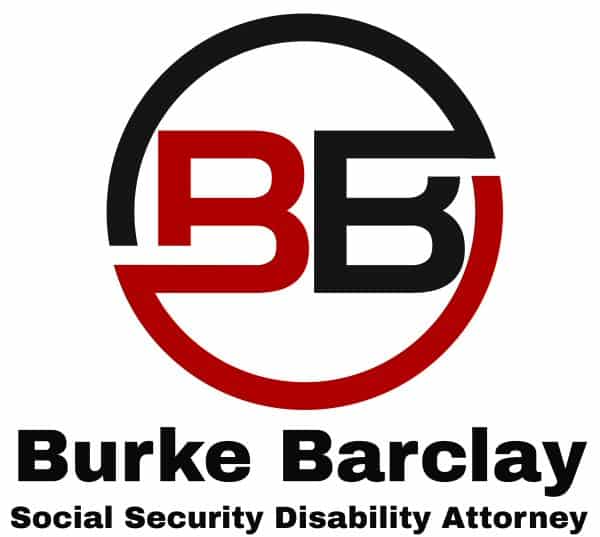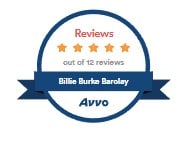10 Things To Consider Before Applying For Social Security Disability
10 Things To Consider Before Applying For Social Security Disability.
Need to file for Social Security disability? Are you unable to work full-time any longer due to a mental or physical limitation or condition?
Think about these 10 things before applying:
1. Consider your age.
By and far, the Social Security disability system favors those over the age of 50. The younger you are, the more likely the Social Security Administration may believe there are other jobs you are capable of performing despite your limitations. The older you are, the less likely you may be found able to do some other type.
The Administration knows that older people are less likely to have the skills necessary to transition to other work and the fact that after a certain age, employers are less likely to hire that person. If you are between the ages of 18 and 40, you may want to consider hiring an experienced Social Security disability attorney to help make an argument that you can not do other types of work within the national economy.
2. Consider your medical records.
This may be the most important aspect of your disability case. If you have not sought consistent medical treatment for your disabling condition, you need to hurry up and do so. Those with consistent medical records that show ongoing treatment from a doctor who specializes in the kind of condition you have will do much better than those who have not. While it is true that many who do have to file for disability benefits do not have the money or insurance to afford treatment, even going through the emergency room at your county hospital will at least help.
Further, it is not enough to just go to the doctor. Build a relationship with him or her and explain what limitations your condition causes you. Ask that he or she document your limitations so that Social Security doesn’t have to guess (which is often not in your favor). If you do have to take your case to the hearing level, judges give controlling or great weight to medical records from a treating physician that shows a continuum of treatment over the course of a long period of time. The more you can go to your doctor, the stronger your case will be.
3. Understand the requirements of being disabled.
A person could write a book just on the requirements the Social Security Administration uses to to determine whether or not a person is disabled. But for here, understand that just because you have a severe condition, this does not necessarily mean you are disabled. At the very core of the disability process, you must not be able to do any work you have performed within the last 15 years, and you must not be able to do some other type of work.
Look at your age, your education level, and what skills have you acquired by working your past jobs. A person, for example, with transferable work skills from a past job may be found not disabled, while a person that has only worked at hard-labor unskilled work his or her life may be successful. No one ever said the system is fair. But, knowing the rules beforehand can help you decide whether or not to seek disability benefits.
4. How long and how consistent have you worked in the past?
If you have worked for a long period of time (10 years or more), then you will likely qualify for Social Security Disability Insurance (SSDI) benefits. A person with a long history of work will have earned work credits sufficient to qualify for disability. Rather, a person without a long history of work may be only able to qualify for Supplemental Security Income (SSI) benefits. If you cannot qualify for SSDI, you are going to have to look at your assets and household income.
If you are married, there are limits to the amount of income a family can make each month. If you are single, there are limits to the amount of money you can personally earn. Many people who do not have sufficient work credits to qualify for SSDI find out that they either have too many nonexempt assets or have too much family income to qualify at all for Social Security disability. If this is the case, then you may receive what is called a technical denial of benefits and you will not qualify for either SSDI or SSI.
5. Is you condition severe enough to really keep you from working?
Within the sequential process of determining whether or not a person is disabled, there must be a determination of the severity of a person’s condition or conditions. In order for your illness to be severe, it must interfere with your ability to do even basic work activities. Thus, you have to know whether or not your condition keeps you from walking, standing, or sitting for long periods of time.
Also, ask yourself whether your condition keeps you from lifting even light objects, using your hands, walking up stairs, seeing, or using your hands in a repetitive manner. If your illness restricts these kinds of activities, then it may be severe enough to satisfy this requirement. If it does not, then you will likely be denied disability benefits.
6. Is your condition one that can be easily determined?
Many people who have to file due to chronic fatigue syndrome, multiple sclerosis, lupus, depression, or bipolar disorder, have a harder time winning their disability case. One of the reasons is that it is harder to measure the severity of these conditions, and the Social Security Administration is often skeptical as to how severe they may be.
If you do have a condition that is not easily measured, then you must seek treatment over a longer period of time and have more detailed medical records than those with other kinds of conditions. This goes back to your requirement for good medical records. You must get your doctor involved in describing and documenting what kind of limitations your condition causes. Without sufficient medical records to prove your disability, you may find it hard to win your case.
7. How long ago did you stop working?
If you stopped working ten years ago, you are going to run into the same problem listed above. If you wait too long, then you run out of work credits to qualify you for SSDI benefits. They expire after a certain period of time, and you could find that you do not qualify for either type of disability and you are locked out of the disability system.
But there are also other reasons as to why you should not wait too long to file for disability. If you stopped working 10 years ago and you were seeking treatment at that time, your medical records may be deemed too old and not relevant to consider them. This also goes back to going to the doctor in a consistent manner.
What happens here is that people are prone to stop going to the doctor when they know there is nothing more that can be done for them. Often, medical records for situations like this are more than five years old and Social Security will not consider them when making a decision. So, if you do have to stop working due to your disability, go ahead and file and keep going to your doctor.
8. Don’t file too early.
Timing is everything in life, and timing for being successful in your disability claim is no different. If you stopped working on a Friday and filed for disability on a Monday, then understand that you are still within the 5 month short-term disability period. While Social Security will accept your claim for disability, you will be put on a medical hold for your short-term disability period and then evaluated to make sure you are still suffering from your condition. Social Security provides long-term disability benefits.
Not only does a person have to be considered disabled for more than 5 months, but your condition needs to be expected to last for a year or more. If your illness is expected or has only lasted for 11 months (for example), then you are not going to qualify. So, the best thing you can do before filing your claim is ask yourself, how long do I expect to be out of work? If it is likely you will be 12 months or more, then file for disability.
9. Do you have to still work and file for disability benefits?
It is not uncommon for a person to need to file for disability and need to work while his or her case is pending. Many people will simply go homeless unless they at least earn some amount of income until they are approved for benefits. But, the trick is to know how much you can earn until your disability check arrives. This goes back to your work history again. If you have worked for a long period of time, then you will likely qualify for SSDI benefits.
If you are expecting this type of disability, then you are allowed to earn an income of no more than $1,130.00 a month gross. If you can qualify only for SSI benefits, then you must not gross more than $733.00 per month. Once you go over these threshold amounts, you will be considered to engaging in what the Social Security Administration calls “substantial gainful activity,” and you will be denied benefits.
Further, if you are approved and you still have to work, these limits apply as well. The rule is, BE CAREFUL! Going over these limits could be detrimental to your case at any stage.
10. If you are approved, keep the correct mindset.
If you were consistently going to the doctor when you were trying to win your disability claim, then keep going even after you are approved. The reality of the disability system is that Social Security will at some point attempt to show that you are no longer disabled. The average person is only approved for 3 years before he or she comes up for review. If you do not have the medical records to prove you are still disabled, your benefits will be terminated.
This has even bigger ramifications than at first blush. All disability attorneys work for a percentage of the back pay owing to a claimant after taking so long to get approved. What happens time and time again, is that a person will win their disability claim, but will not continue to seek treatment while receiving payments.
When those 3 years are up and it is time for a review, it is only then they turn to a disability attorney to “fix” their problem. But, most disability attorneys will refuse to take the case because there is not a sufficient amount of back pay owing to the claimant. Thus, this often leaves a claimant alone to fend for themselves in his or her review.
Also, many times Social Security till terminate benefits even while the claimant is appealing. A person could find themselves in the same predicament he or she was in before being approved…no money, no place to live, and no chance of winning your benefits (again).
You Need an Experienced Social Security Disability Lawyer
We represent claimants fighting for their Social Security disability benefits throughout Texas and California. Contact the Law Office of Burke Barclay for a highly experienced Social Security Disability Lawyer in Dallas, Texas
"Experienced Social Security Disability Lawyer representing clients throughout the United States who either need to initially file for their Social Security disability benefits or have been denied at one of the various stages throughout the process to give them the best chances of success."
Business Address
The Law Office of Burke Barclay
3838 Oak Lawn Ave.
Suite 1000
Dallas, TX 75219
Business Hours
Monday - Friday
8:00 AM - 5:00 PM





